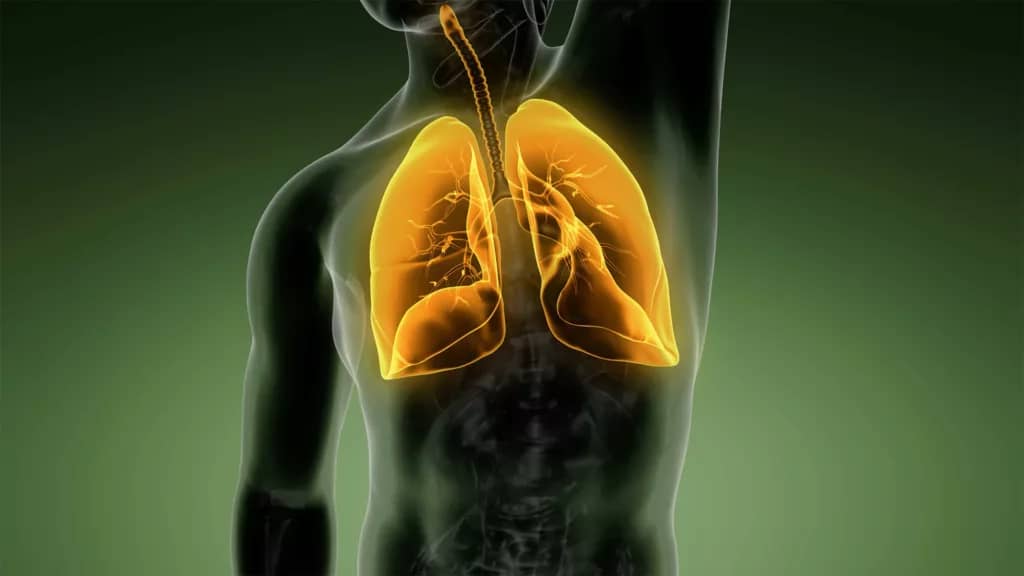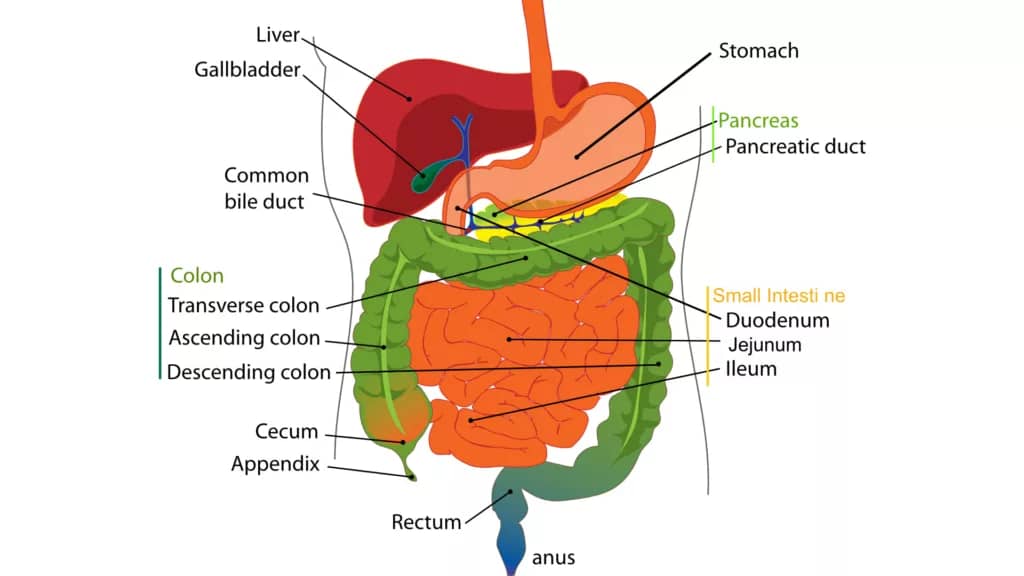TCM Respiratory Health
The lung is one of the five vital organs in Traditional Chinese Medicine (TCM) and is associated with the metal element. Along with the liver (wood), heart (fire), spleen (earth), and kidneys (water), the lungs are responsible for respiration, as well as playing a vital role in the immune system and regulation of energy and fluids in the body. According to TCM theory, the lungs are also connected to emotions such as grief and sadness and are believed to have a close relationship with the skin, which is thought to be the outermost layer of the lungs. As such, maintaining good lung health is essential for overall health and wellbeing.
TCM’s Respiratory Potential
Traditional Chinese Medicine (TCM) has been used to treat respiratory conditions in China for thousands of years. Some common respiratory conditions that TCM is used to treat include asthma, bronchitis, chronic obstructive pulmonary disease (COPD), pneumonia, and the common cold. TCM treatments for respiratory health typically include a combination of acupuncture, herbal medicine, dietary therapy, and other TCM modalities to address the root cause of the condition and restore balance to the body.
Covid19 validation
In China, Traditional Chinese Medicine (TCM) has been used alongside conventional Western medicine to help battle COVID-19. TCM treatments have been used for both prevention and treatment of COVID-19.
According to the National Administration of Traditional Chinese Medicine in China, over 85% of COVID-19 patients in China have received TCM treatment during their hospital stay. TCM has been used to help alleviate symptoms such as cough, fever, and fatigue, as well as to improve immune function and overall well-being.
TCM practitioners in China have developed specific herbal formulas and acupuncture protocols to help address the symptoms of COVID-19. For example, a TCM formula called “Qing Fei Pai Du Tang” was used to treat COVID-19 patients in Wuhan. This formula includes a combination of herbs that are believed to have antiviral, anti-inflammatory, and immune-boosting properties.
In addition to herbal medicine and acupuncture, TCM practitioners in China have also recommended dietary modifications and lifestyle changes to help prevent and manage COVID-19. This includes recommendations such as drinking herbal teas, consuming foods that are rich in vitamins and minerals, and practicing stress-reducing techniques such as meditation and qi gong.

It is worth noting that while TCM has been used successfully in China to help battle COVID-19, its effectiveness and safety have not been fully evaluated through rigorous scientific research. TCM should be used as a complementary therapy alongside conventional medical treatment for COVID-19, and individuals should consult with a qualified TCM practitioner and their healthcare provider before using any TCM therapies.
TCM Respiratory Benefits
Traditional Chinese Medicine (TCM) offers several benefits for respiratory health. TCM considers the lungs as one of the primary organs that govern respiration, and many TCM treatments focus on strengthening lung function and overall respiratory health. Some of the benefits of TCM for respiratory health include:
- Reducing inflammation: TCM herbs and acupuncture can reduce inflammation in the respiratory tract, which can alleviate symptoms of respiratory conditions such as asthma and chronic obstructive pulmonary disease (COPD).
- Boosting immunity: TCM can strengthen the immune system, helping the body to fight off respiratory infections.
- Improving lung function: TCM can improve lung function by increasing lung capacity and strengthening the muscles used for breathing.
- Relieving stress: TCM treatments such as acupuncture and herbal medicine can help to alleviate stress and anxiety, which can contribute to respiratory conditions.
- Enhancing overall wellness: TCM treatments focus on promoting overall wellness and balance in the body, which can help to prevent respiratory conditions and improve respiratory health.
Common Chinese herbs
There are several commonly used TCM herbs for respiratory illnesses, including:
- Ma Huang (Ephedra): Used for bronchitis, asthma, and other respiratory conditions, it helps to open the bronchial tubes and ease breathing.
- Zi Wan (Aster root): Used for coughs and wheezing, it helps to moisten the lungs and stop coughing.
- Sang Bai Pi (Morus root bark): Used for dry coughs, it helps to moisten the lungs and stop coughing.
- Bai Qian (Cynanchum root): Used for asthma, it helps to open the bronchial tubes and reduce inflammation in the airways.
- Gan Cao (Licorice root): Used for sore throat and coughs, it helps to moisten the throat and soothe irritation.
- Xing Ren (Apricot seed): Used for coughs and wheezing, it helps to moisten the lungs and stop coughing.
- Huang Qin (Scutellaria root): Used for inflammation in the respiratory tract, it helps to reduce swelling and clear phlegm.
- Chen Pi (Tangerine peel): Used for coughs and chest congestion, it helps to promote the flow of Qi (energy) in the body and remove phlegm.
These herbs are often combined into specific formulas tailored to the individual patient’s needs. It’s important to note that these herbs should be used under the guidance of a licensed TCM practitioner.
Common acupuncture points
There are numerous acupuncture points in the body that are used to treat various conditions. Here are some of the commonly used acupuncture points for different respiratory illnesses:
- LU5 (Chize): Used to treat cough, wheezing, and shortness of breath.
- LU7 (Lieque): Used to treat cough, asthma, and sore throat.
- LI4 (Hegu): Used to treat sinusitis, rhinitis, and facial paralysis.
- GV14 (Dazhui): Used to treat asthma and cough.
- CV17 (Danzhong): Used to treat cough, asthma, and chest congestion.
- BL13 (Feishu): Used to treat lung disorders such as bronchitis and asthma.
- BL20 (Pishu): Used to tonify the lungs and spleen.
These are just a few examples of commonly used acupuncture points for respiratory illnesses. The specific points used in a treatment will depend on the individual’s condition and the practitioner’s assessment.
Maintaining respiratory health
Respiratory health is crucial to our overall wellbeing. Our lungs are responsible for supplying our body with oxygen and removing carbon dioxide, which is essential for our cells to function properly. However, with the increasing prevalence of air pollution, smoking, and respiratory infections, maintaining good respiratory health has become a major challenge for many people. While there are many conventional medical treatments available, traditional therapies such as Traditional Chinese Medicine (TCM) can also be effective in promoting respiratory health.
Here are some tips for maintaining respiratory health:
- Quit smoking: Smoking is one of the biggest risk factors for respiratory diseases, including lung cancer, chronic bronchitis, and emphysema. Quitting smoking is the best way to reduce your risk of developing these conditions.
- Exercise regularly: Regular exercise helps to improve lung function and can reduce the risk of respiratory illnesses. Aim for at least 30 minutes of moderate exercise most days of the week.
- Practice good hygiene: Practice good hygiene, including washing your hands frequently, covering your mouth and nose when coughing or sneezing, and avoiding close contact with people who are sick.
- Avoid exposure to pollution: Air pollution, including indoor air pollution, can worsen respiratory symptoms and increase the risk of respiratory diseases. Avoid exposure to pollutants as much as possible.
- Manage allergies: Allergies can cause respiratory symptoms such as coughing, sneezing, and shortness of breath. Manage your allergies with appropriate medications and avoid exposure to allergens whenever possible.
- Get vaccinated: Vaccinations can help prevent respiratory infections such as the flu and pneumonia, which can be particularly dangerous for people with respiratory conditions.
- Seek medical attention for respiratory symptoms: If you experience persistent respiratory symptoms such as coughing, wheezing, or shortness of breath, seek medical attention. Early diagnosis and treatment can help prevent complications and improve outcomes.
At Huatuo Clinic, we offer personalized treatment plans for respiratory health issues using Traditional Chinese Medicine modalities, including acupuncture, Chinese herbal medicine, dietary therapy, and other therapies. Our TCM practitioners take a holistic approach to treating respiratory illnesses by addressing underlying imbalances and promoting overall health and wellness. We focus on maximizing function and recovery, decreasing inflammation, and boosting immunity to improve respiratory health. Our goal is to provide effective and natural treatment solutions that improve symptoms and enhance quality of life for our patients.
For personalized treatment solutions to improve your lung health, please contact us at Huatuo Clinic for a professional consultation.





